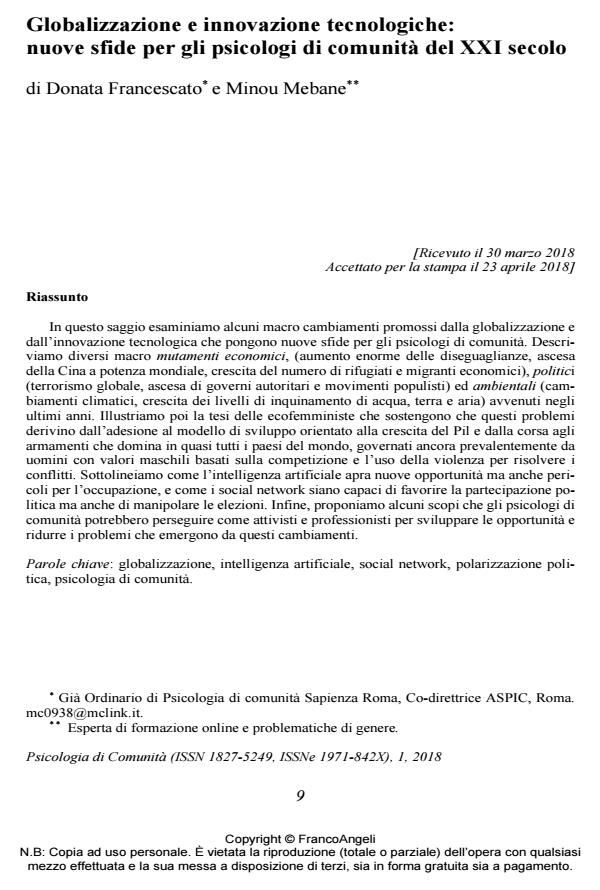Globalization and technological innovation: new challenges for community psychologists in XXI century
Journal title PSICOLOGIA DI COMUNITA’
Author/s Donata Francescato, Minou Mebane
Publishing Year 2018 Issue 2018/1
Language Italian Pages 11 P. 9-19 File size 207 KB
DOI 10.3280/PSC2018-001002
DOI is like a bar code for intellectual property: to have more infomation
click here
Below, you can see the article first page
If you want to buy this article in PDF format, you can do it, following the instructions to buy download credits

FrancoAngeli is member of Publishers International Linking Association, Inc (PILA), a not-for-profit association which run the CrossRef service enabling links to and from online scholarly content.
This paper explores how some macro changes, brought about by globalization and tech-nological innovation, have created new challenges for community psychologists. We describe some economic changes (great increase in economic inequality, rise of China as a global power, growth of the number of war refugees and migrants), political changes (global terrorism, increase of authoritarian governments and populist movements) and environmental changes (climate change, rising air, water and earth pollution). We then discuss the eco-feminist thesis that all these diverse problems originate from the outdated development model based on growth of GNP and armament races, that still dominates in most countries, governed by males who value competition and the use of violence to solve conflicts. We also underline how the artificial intelligence revolution opens up both new opportunities and dangers for job prospects, and how social networks can favor political participation but also interference in political elections. Finally, we discuss aims that community psychologists could pursue as activists and professionals to help develop the opportunities and reduce the problems that emerge from these changes
Keywords: Globalization, artificial intelligence, social networks, political polarization, community psychology
Donata Francescato, Minou Mebane, Globalizzazione e innovazione tecnologiche: nuove sfide per gli psicologi di comunità del XXI secolo in "PSICOLOGIA DI COMUNITA’" 1/2018, pp 9-19, DOI: 10.3280/PSC2018-001002